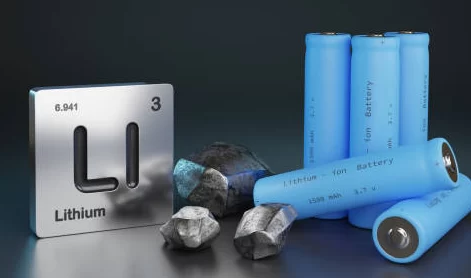Huawei Black Scale Battery: A Disruptor in the Lithium Battery Market?
In today’s battery market, lithium batteries hold a dominant position, powering devices from smartphones to electric vehicles and energy storage systems. However, the recent emergence of Huawei’s Black Scale Battery has been a game-changer, sparking heated discussions on whether it will disrupt the lithium battery market.
1. Advantages of the Huawei Black Scale Battery
Ultra-High Energy Density
Black Scale, as a novel material, has a unique layered structure with an energy density seven times that of graphite. This means the Black Scale Battery can store more energy in the same volume, providing longer battery life. For smartphone users, this could mean no more battery anxiety and no need for bulky power banks; for electric vehicle (EV) owners, it could mean an extended range, potentially exceeding 1,000 km, effectively resolving range anxiety.
Fast Charging Speed
The Black Scale Battery’s anode material, with its specialized layered structure, offers strong ion conductivity, enabling fast charging. Tests show that Black Scale composites can recharge to 80% in just nine minutes—remarkably faster than current lithium battery devices renowned for fast charging. For instance, it usually takes at least 30 minutes to charge an EV battery to 80%. Such charging speeds could redefine user habits, saving time and improving device efficiency.
Outstanding Cycle Stability
According to experimental data, the Black Scale Battery retains 90% of its charge capacity even after 2,000 charging cycles, suggesting a long lifespan that can withstand prolonged and frequent usage. For consumers, investing in Black Scale Battery devices could mean fewer battery replacements, lowering costs and environmental impact. While lithium batteries are also improving in lifespan, the Black Scale Battery still holds an edge.
High Safety Standards
During the development of the Black Scale Battery, Huawei addressed safety concerns, such as the tendency for Black Scale materials to expand during charging. They patented technology using stabilizers to counteract this instability and reduce expansion issues, enhancing battery safety—a crucial factor for applications in safety-critical areas like electric vehicles.
2. Current State of the Lithium Battery Market
Established Application Base
With years of development, lithium battery technology is relatively mature, supported by a well-developed industry chain. Lithium batteries are widely used in smartphones, laptops, EVs, and energy storage, holding a substantial market share. Battery manufacturers, device makers, and consumers all have high confidence in lithium batteries. For example, leading EV brands like Tesla rely primarily on lithium batteries.
Ongoing Performance Improvements
Despite reaching performance limitations, lithium battery technology continues to advance through material improvements and structural optimization, enhancing energy density, charging speed, and lifespan. Some newer lithium batteries can charge quickly in half an hour, and their energy density continues to rise, keeping lithium batteries highly competitive.
Challenges Ahead
Lithium batteries, however, face challenges. First, as EVs and storage needs grow, demands for higher energy density and extended range increase, straining lithium batteries. Secondly, fluctuations in raw material prices, particularly cobalt and lithium, impact costs. Lastly, safety concerns, such as risks of fire or explosion in cases of overcharging or short circuits, remain issues.
3. The Impact of Huawei’s Black Scale Battery on the Lithium Battery Market
Increased Competitive Pressure
The launch of the Black Scale Battery significantly intensifies competition in the battery market. Its superior performance and potential cost advantages compel lithium battery companies to accelerate research and product upgrades to meet the challenge. Smaller lithium battery companies might struggle, leading to market consolidation among major players. Some companies may opt to collaborate with Huawei to co-develop Black Scale Battery technology, further driving industry progress.
Driving Industry Innovation
The Black Scale Battery introduces a new technological direction and innovative mindset to the battery industry. Researchers and companies may focus more on developing new materials to improve battery performance, fueling technological advancements across the sector. Some companies may even increase investments in alternative battery technologies, such as solid-state and sodium-ion batteries, to stay competitive.
Accelerating Market Reshuffle
The impact of the Black Scale Battery will likely accelerate changes in the lithium battery market. Companies that can quickly adapt, innovate, and upgrade products will gain an advantage, while those lagging in technology may face elimination. This reshuffle could lead to a healthier, more organized industry that provides better products and services to consumers.
4. Challenges Facing the Black Scale Battery
Technology Maturity
Although Huawei has obtained patents for the Black Scale Battery, it remains in the research and testing phases, not yet ready for widespread commercial use. Technical hurdles such as stability, consistency, and safety need further resolution, and production processes require optimization to enhance efficiency and quality.
Cost Control
Currently, Black Scale Battery production costs are relatively high, limiting its large-scale application. While costs are expected to decrease with technological improvements and increased production, in the short term, it will be challenging to compete cost-wise with lithium batteries. Huawei will need to optimize production and raw materials to make the Black Scale Battery more affordable.
Building the Industry Chain
Lithium batteries have a complete industry chain developed over many years, from raw materials to production, manufacturing, and recycling. The Black Scale Battery, as a new technology, lacks this established industry chain and requires significant funding and time for development. For example, Black Scale material production and supply, as well as battery manufacturing equipment, need further support for widespread application.
With its high energy density, fast charging, excellent cycle stability, and strong safety features, the Huawei Black Scale Battery shows enormous potential and may hold a significant position in the future battery market. However, challenges in technology maturity, cost control, and industry chain development remain before it can fully disrupt the lithium battery market. Nevertheless, Huawei’s Black Scale Battery offers new opportunities and challenges, driving continuous advancements in battery technology. Going forward, we should closely follow developments in Black Scale Battery technology and its market applications, anticipating the convenience and surprises it could bring to our lives.

